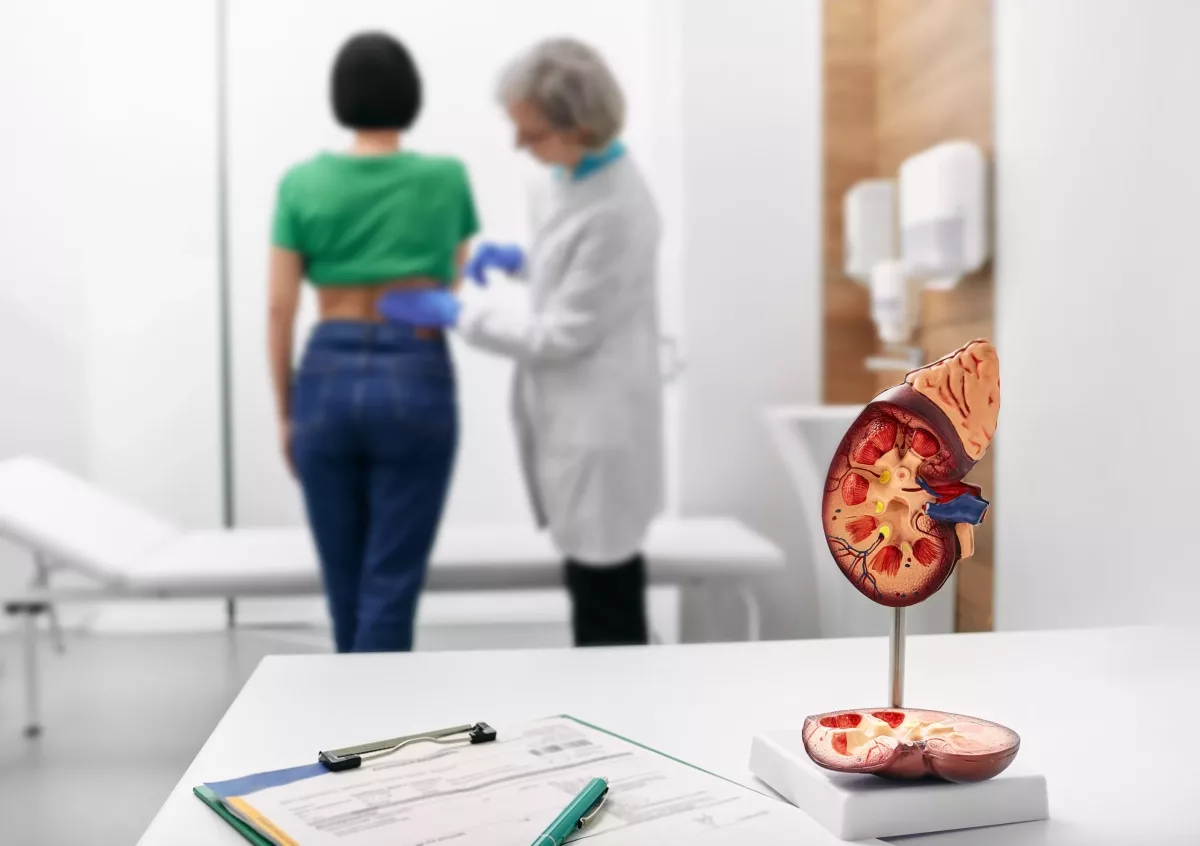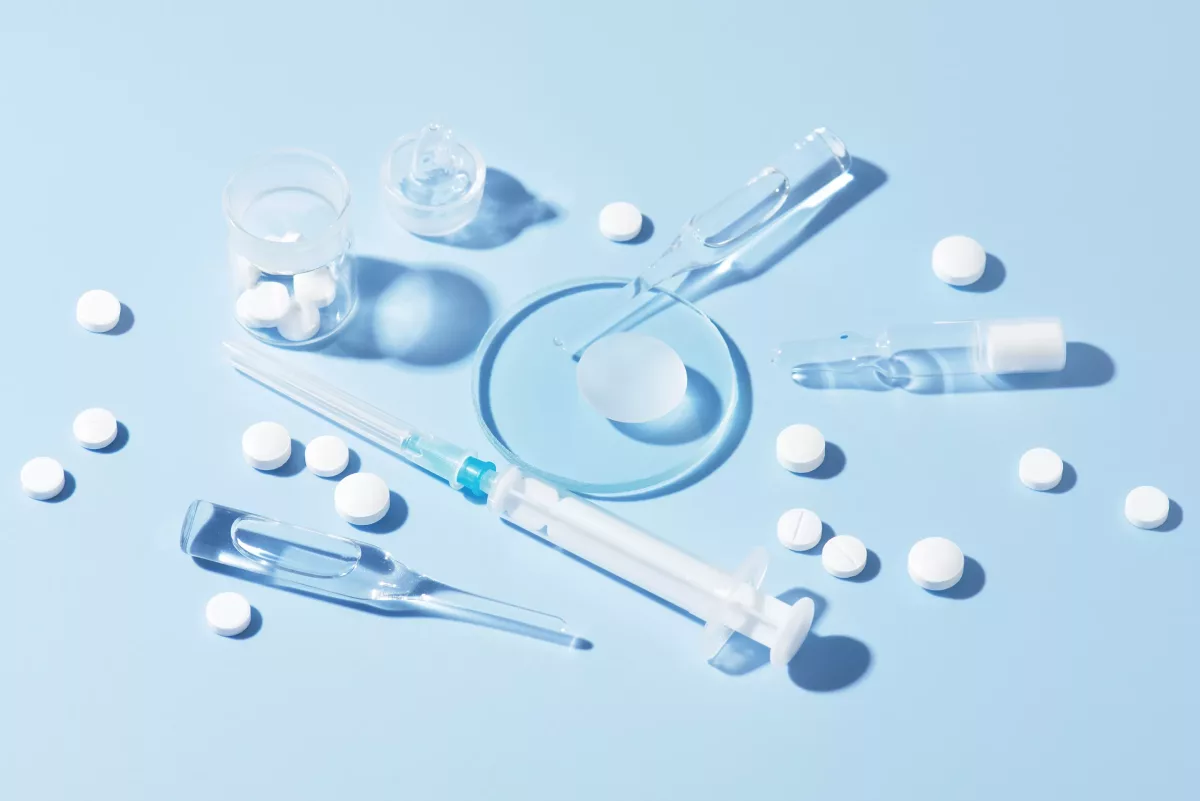A condition in which the kidneys suddenly become unable to filter waste from the blood is called acute kidney injury. In people with this condition, harmful substances in the blood begin to build up, which makes the blood’s chemical makeup get out of balance.
Sometimes, this condition is called acute kidney failure. It often happens in people who are already in the hospital and require intensive care.
While some people may experience a mild form of the condition, others develop the severe form that, without treatment, can be fatal. If a healthy adult develops this condition, he/she often completely recover from this disease. It means the kidney function is restored completely or nearly completely.
Symptoms
People with acute kidney failure often experience the following symptoms. Examples include:
- Tiredness
- Confusion or fogginess
- Nausea
- Weakness
- Abdominal pain
- Itching
- Irregular heartbeat
- Appetite changes
- Chest pain
- Seizures or coma (rarely)
- Fluid buildup
- Decreased urination
In some cases, people with acute kidney injury do not experience any symptoms, and the condition can be identified only through certain laboratory tests.
If any of the previous symptoms occur, immediately contact your healthcare professional.
Causes
Usually, this kidney condition occurs due to a condition that slows blood flow to the kidneys, damage to the kidneys, or drainage tubes of the kidneys (also known as ureters) become extremely narrowed or blocked.
Reduced Blood Flow to the Kidneys
Check below some diseases that may lead to decreased blood flow to the kidneys:
- Dehydration (loss of body fluids)
- Infections (such as sepsis)
- Certain medications, including Aspirin, Ibuprofen, Naproxen sodium, and others
- Blood loss
- Severe hypotension (low blood pressure) caused by antihypertensives
- Myocardial infarction (heart attack)
- Heart failure or other heart diseases
- Chronic liver conditions (such as cirrhosis, liver failure, and others)
- Serious allergic reactions (such as anaphylaxis)
- Severe burns
Kidney Damage
Sometimes, people develop acute kidney injury due to damage to the kidneys. Check below some conditions and medicines that may cause damage to the kidneys:
- Glomerulonephritis (irritation and swelling of small filters in the kidneys called glomeruli)
- Some medications (these include chemotherapy drugs, antibiotics, dyes used during imaging tests, and others)
- Infections (such as COVID-19)
- Certain toxins (including heavy metals, cocaine, and alcohol)
- Autoimmune conditions (such as lupus)
- Blood clots that form in the arteries and veins that supply the kidneys with blood
- High cholesterol
- Hemolytic uremic syndrome (this is a condition in which red blood cells are destroyed too early)
- Some rare conditions that cause damage to the skin and connective tissues (scleroderma)
- Thrombotic thrombocytopenic purpura (this is a rare blood disorder that may also lead to acute kidney injury)
- Rhabdomyolysis
- Tumor lysis syndrome (this is a condition in which toxins from a tumor breakdown cause damage to the kidneys)
Urinary Blockage in the Kidneys
Generally, conditions that keep the urine from leaving the body are called urinary obstruction. Check below some examples:
- Cancer of the bladder, cervix, colon, or rectum
- Certain growths that put pressure on the ureters
- Nerve damage
- Blood clots that develop in the urinary tract
- Enlarged prostate gland
- Kidney stones
Risk Factors
Approximately all the time, acute kidney injury is linked with another health condition. Check below some conditions that significantly elevate the risk of developing this kidney disease:
- Chronic kidney disease
- Age – While it mostly occurs in older people, young people may also develop it.
- Being in the hospital
- Peripheral artery disease (blockages in the arteries or veins in the legs or arms)
- Diabetes
- Hypertension (high blood pressure)
- Heart failure
- Cirrhosis
- Some types of cancer and their treatments
What Happens if Acute Kidney Injury is Left Untreated?
People with this kidney disease may also experience some complications. These include:
- Fluid buildup in the lungs may cause shortness of breath
- Chest pain – This complication often occurs when the pericardium (the layer that covers the heart) becomes inflamed.
- Muscle weakness – It often occurs when fluids and minerals from the blood are out of balance.
- Permanent kidney damage – Some people may develop end-stage renal disease. In such cases, the patients often require lifelong treatments to remove waste from the blood (dialysis) or a kidney transplant to survive.
- Death
How to Prevent Acute Kidney Injury?
While the condition cannot be prevented, the following tips may reduce the risk of developing it. Examples include:
- Get immediate treatment if you develop serious infections (such as sepsis)
- Manage your chronic health conditions (such as hypertension, diabetes, and others)
- It is not advised to administer over-the-counter (OTC) medicines without your doctor’s approval. For example, Aspirin, Naproxen sodium, or Ibuprofen because these OTC pain relievers increase the risk of kidney damage.
- Regular physical exercise, adopt a balanced diet, and limit or avoid alcoholic drinks.
Diagnosis
Usually, the following tests are involved in acute kidney injury diagnosis. For example:
- Blood tests – These tests help doctors determine how well your kidneys work.
- Urine output measures – This test is used to measure how much urine you pass in 24 hours. It may help determine the exact cause of the kidney failure.
- Urine tests – A urine sample testing may help get more clues about the condition that causes kidney failure. This test is also called urinalysis.
- Imaging tests – Usually, doctors perform an ultrasound or a CT (computerized tomography) scan to get detailed images of the kidneys.
- Kidney biopsy – During this procedure, doctors will get a small sample of the kidney tissue for testing. Doctors often get the kidney sample by inserting a needle into the kidney through the skin.
Treatment
Commonly, people with this kidney disease are treated in the hospital. Furthermore, most people with acute kidney injury develop the condition while staying in the hospital. Check below some treatments often recommended by doctors for people with acute kidney failure:
Underlying Condition Treatment
When the acute kidney injury is caused by another condition, the treatment focuses on treating the underlying cause. For instance, if you are taking medicines that cause damage to the kidneys, doctors may reduce the dose or even change the medicine.
Treatments for Acute Kidney Injury Complications
The following treatments are used to prevent complications that allow your kidneys to heal. These include:
- Intravenous (IV) fluids – This treatment is often used in people with dehydration.
- Medications to control Potassium levels in the blood – In people with kidney failure, Potassium may begin to build up. Therefore, doctors usually prescribe some medicines called Potassium binders that prevent it from building up. For example, Sodium zirconium cyclosilicate or Patiromer. Increased levels of Potassium in the blood may lead to muscle weakness, arrhythmia, and other health problems.
- Calcium medicines – Some people with acute kidney injury may have reduced Calcium levels in the blood. Hence, doctors may give you a calcium infusion through a vein.
- Hemodialysis (also known as dialysis) – This treatment is used to remove waste products from the blood. It is often recommended for people with kidney failure.
Dietary Changes
In most cases, your doctor recommends the following dietary changes while you recover from acute kidney injury. For example:
- Eat foods lower in Potassium – For example, peaches, carrots, apples, green beans, white bread, and white rice. Avoid the following foods because they contain high amounts of potassium. These include bananas, tomatoes, oranges, beans, nuts, and potatoes.
- Avoid foods with added salt – These include packaged foods (such as frozen dinners, canned soups, and fast foods). You should also avoid cheeses, processed meats, and canned vegetables.
- Limit Phosphorus – An increased level of Phosphorus in the blood may lead to weakness of the bones and itching. These include dark-colored sodas, milk, oatmeal, and bran cereals.
Frequently Asked Questions
Can AKI be cured?
Yes, most people with acute kidney injury (AKI) recover completely. Sometimes, people with this condition may develop chronic kidney disease. In severe cases, people need dialysis (a procedure that removes waste from the blood).
What is acute kidney injury caused by?
The most common causes of this kidney disease are hypovolemia, heart failure, and adverse reactions to medicines. Usually, hypovolemia occurs due to excessive bleeding or dehydration. For more details, discuss it with your physician.
What’s not to drink if you have kidney problems?
The following drinks should be avoided by people with kidney disease because they may cause kidney function problems and may increase the risk of developing kidney stones. For example:
- Colas
- Energy drinks
- Alcohol
- Surgery drinks
- Caffeine
- Dairy products
- Oranges or orange juice
This article does not contain all the possible drinks that should be avoided by people with kidney conditions. If you have additional questions, ask your healthcare provider.




